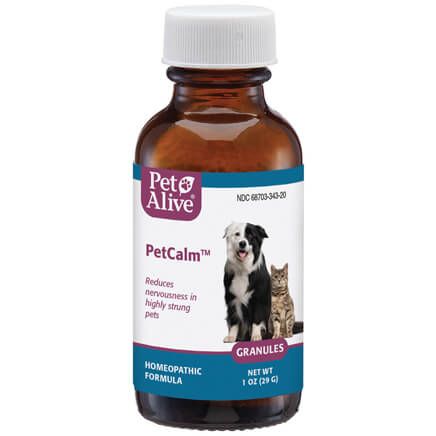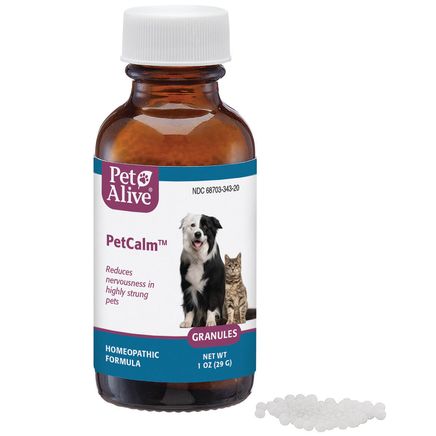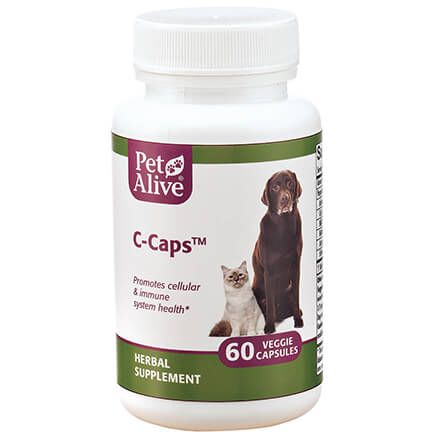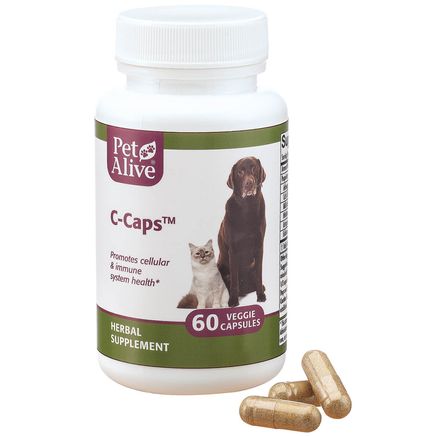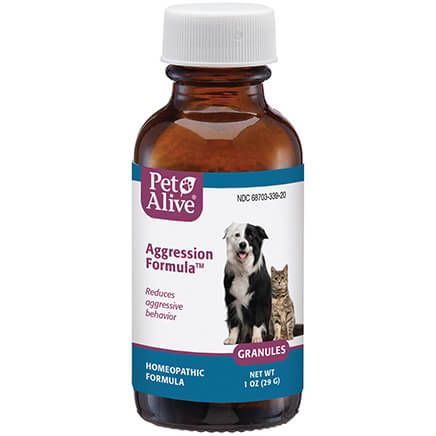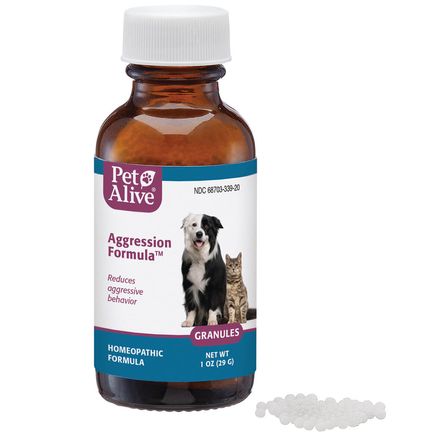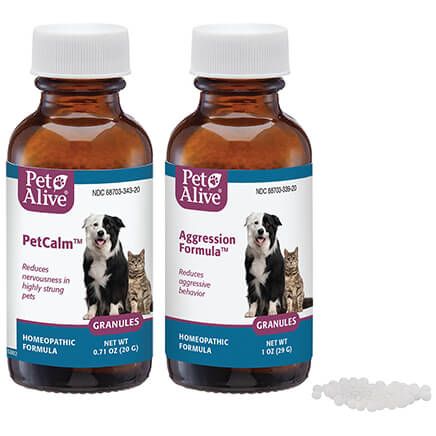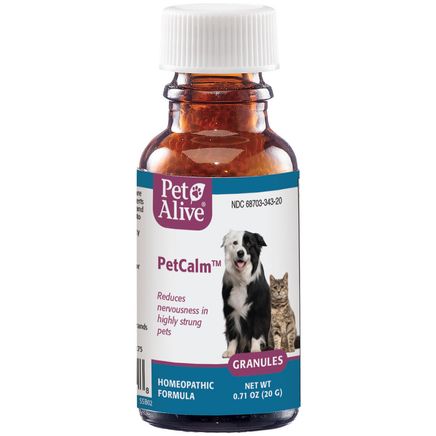What is PetCalm™?
PetCalm™ Granules are a safe, non-addictive, FDA-registered 100 percent natural homeopathic OTC medicine formulated especially to relieve acute symptoms of fear and nervousness in cats and dogs, helping to calm and soothe your pet back to a balanced mood.
Use PetCalm™ regularly to reduce behaviors related to general anxiety and stress in high-strung or chronically anxious pets, or use it as needed at times of acute pet anxiety, such as when moving to a new home or going to see the vet, for relief from periodic symptoms.
PetCalm™ comes in convenient, dissolvable granule form. You can safely and easily sprinkle these pleasant-tasting granules on your pet's food or directly onto her tongue. The natural medicine will be rapidly absorbed in your pet's mouth - making them easy to administer. PetCalm™ is a natural remedy with no risk of side effects or addiction that can be safely consumed by animals of all ages and sizes.
All PetAlive® homeopathic products and biochemic tissue salts are manufactured in a FDA registered and cGMP compliant pharmaceutical facility under the supervision of qualified homeopaths and responsible pharmacists. Individual ingredients are listed in the Homeopathic Pharmacopoeia of the United States (HPUS).
Anxiety in Pets
Although certain animals have a more nervous temperament than others, traumatic events or exposure to particular stressors can upset even a normally calm animal.
Infrequent events like fireworks, a trip to the vet or thunderstorms cause a lot of stress for household pets because their perception makes the noise or change seem like a threat. Even the everyday noise from a hair dryer or vacuum cleaner can frighten some animals. When pets are not introduced to potentially stressful situations when they are young - like being around small children or other animals - those will often cause a fearful or anxious response, as well. Of course, an abusive situation or change of owner has the potential to instill fear also, and those situations require patience and discipline to overcome.
Pets that are left alone for long periods without access to space for exercise and those fed cheap, low-nutrition diets will also develop high levels of stress and anxiety, and may present aggressive or inappropriate behavior. In addition, pets are very attuned to their owner's stress levels. If you are anxious and stressed, your pet will sense it and react in kind. This can be a problem when participating in competitive events like pet shows and breeder competitions. When there is stress in the home due to relocation, divorce or other conflict, PetCalm™ Granules can help your pet cope without compromising her health.
The Natural Way
The best approach to nervous system health is a holistic one. This includes a healthy diet, regular exercise and a secure home environment - as well as extra support in times of stressful events like moving day.
Natural remedies can be very helpful for safely and effectively soothing fear and nervous anxiety.
What else can you do to calm your dog or treat pet anxiety during times of stress? Here are some tips from our Clinical Psychologist and Veterinary Nurse:
Although it's a natural urge to comfort your pet during times of distress, giving your pet attention when it displays bad behavior during a frightening episode such as a thunderstorm may actually encourage that behavior. Ensure that your pet feels secure, turn up the radio or television to mask loud noises and provide a warm, cozily lit area for your pet to sleep in. Then do your best to ignore any unwanted behavior. It's not easy, but it's the best choice for your pet's overall health.
Be consistent with reactions to your pet's behavior. The whole family needs to follow the same routine when dealing with your pet's anxieties, or your pet will become confused and even more insecure.
Consider consulting an animal behaviorist if your pet's behavior is affecting quality of life.
The sooner you address bad responses to stressful situations, the easier it will be to modify the inappropriate behavior.
Start socializing your pet at an early age, helping her to become accustomed to trips in the car, strange noises, children, noisy trucks, etc.
Engage in regular daily exercise with your pet to help both of you stay fit and manage everyday stress. Bored, frustrated animals are more likely to misbehave, and exercising together can build close bonds of trust.
A confident pet is a happy pet who gets lots of love from her owner, along with consistent rules and discipline.
Resources 1. Martin, Kenneth, DVN, and Debra Horwitz, DVM. "Fears, Phobias, and Anxiety in Cats and Dogs." Vca_corporate. Accessed July 07, 2019. https://vcahospitals.com/know-your-pet/fears-phobias-and-anxiety

